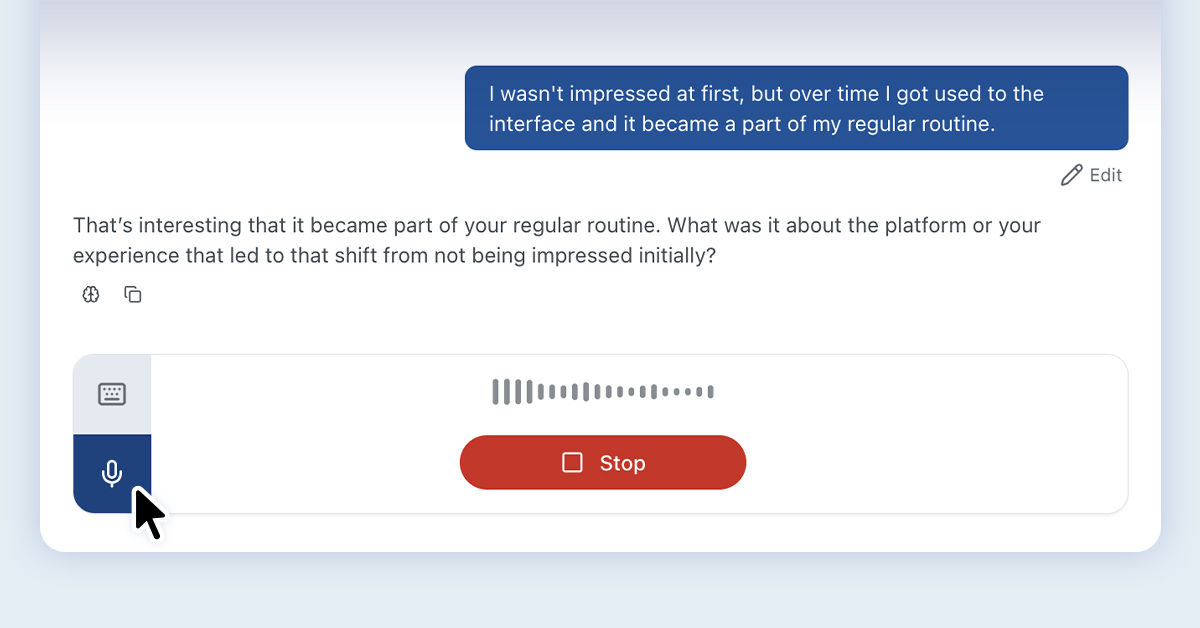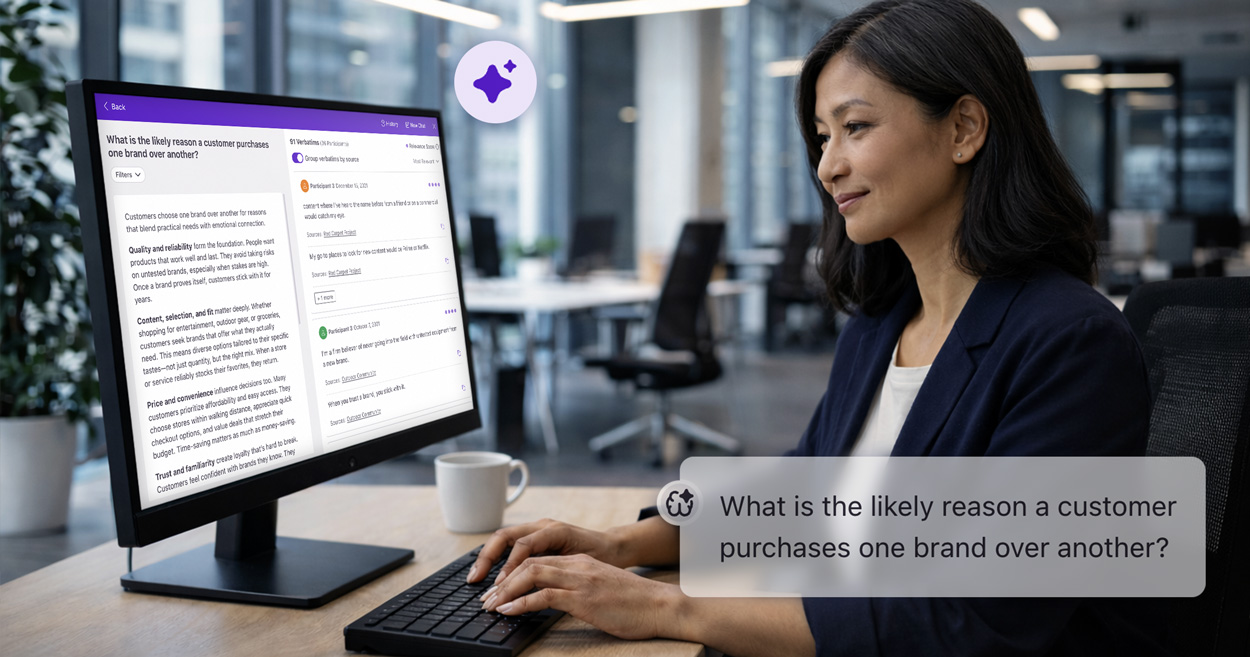While activities are your best bet when you need to collect structured responses, Discussions are the way to go when you are looking to collect more organic, unfiltered responses from your participants. In some situations, the open nature of a Discussion Topic even has the potential to get responses you never would have expected in the first place! The less structured and more conversational style of Discussion Topics can be great for collaborative methodologies like group ideation - especially when employing dedicated feedback stages, and they can also be a great way to keep participants engaged when running long-term communities. In today's blog, we'll be discussing:
- What are Discussions?
- What can you do with Discussions?
- Discussions: Creative Examples
What are Discussions?
Discussions are essentially an always on forum that can be enabled within a study. Unlike Activities, Discussions are unstructured in nature and participants are not required to join the conversation. They are made up of a series of Discussion Topics that are typically used to supplement Activities by providing an area for participants to socialize and interact with each other outside the standard socialization available on Activities. Topics are 'threads' with an initial description that participants can reply to, and these replies can be liked, disliked, or commented on by other participants.

What can you do with Discussions?
- Categories: Discussion Topics can be broken out into multiple categories, allowing you to bring a degree of structure and organization to an otherwise open and unstructured area. This is particularly useful when you have a large number of Discussion topics within a single study, as they help with navigation and can help ensure that relevant Discussion Topics are easy for your participants to find.

- Scheduling: Discussion Topics can be scheduled to start and/or end on specific dates, allowing you to prepare a series of topics in advance that can be released over the course of your study. This can be used to create daily Discussion Topics before your study starts so that you're not required to program a new one each day. Alternatively, you could schedule the end of your topics if you're worried that participants replies may be biased by subsequent Activities.
- Feedback Stages: A Feedback Stage can be used to stop participants from providing more replies to a topic while still allowing them to comment, like, or dislike on replies that have already been made. This can be useful for encouraging a more focused and thorough debate on specific replies as opposed to having participants continuously provide new replies of their own.
- Participant Created Topics: You can provide your participants with the option to create their own Discussion Topics, allowing them to lead the conversation. This can help to create a more interactive experience and can be especially effective at encouraging socialization in communities where your participants are likely to have a lot in common. For example, when running a community focused on a specific game or hobby, participants would be able to post topics and ask for help/advice from other likeminded individuals.

Discussions: Creative Examples
Bug Reporting
Discussions can be particularly useful for bug reporting when testing websites or applications. You can create topics for common bugs and have participants report back within these topics anytime they experience a related bug. You can even create categories to house similar bug topics together. Similarly, you could setup a topic for participants to provide feature requests and/or suggestions. Alternatively, you could allow your participants to create their own topics for bugs they experience that have not already been reported.
Live Discussions
You can use Discussions to have an open conversation with your participants regarding live events, such as a new episode of a tv show, or an awards ceremony. You could schedule a topic to start shortly before your event and end shortly after, ensuring that any replies, comments, and ratings are made by participants during the course of the live event. By allowing participants to participate in this open discussion during the event, you may receive responses and feedback that you would not have been able to collect otherwise. This can be particularly engaging for your participants, as it is almost like having an online viewing party!
Focus Groups
Discussions Topics can be used to conduct online focus groups by providing your participants with a space to openly discuss a particular topic. You can even break out an existing community into multiple smaller focus groups using segmentation! Each of your segmented focus groups could have separate moderators who could interact with the participants and probe for additional detail. These moderators would also be able to interact with clients in the backroom, ensuring that you are narrowing in on the particular responses or participants your clients are interested in.
Ideation
Discussions can be used to conduct open ideation with your participants by enabling Feedback stages. For example, you may want to have participants provide new product ideas from Monday to Wednesday, and then have them vote on the best ideas on Thursday and Friday. You'll just need to schedule your topic for Monday, set the feedback stage to start on Thursday, and limit the topic so that no ratings or comments can be made prior to the feedback stage. Once the exercise is over, you can then sort the posts in terms of Highly Rated and / or Most Comments to see which ones garnered the most support and why.

As you can see, Discussions are a great way to collect more organic, unfiltered responses from your participants and can be especially useful when your aim is to have a highly social community. The conversational style can be great for things like Live Discussions, Focus Groups, Ideation exercises, and much more, enabling you to collect insights you may never have even thought of in the first place! Make sure to consider them on your next project!







.svg)